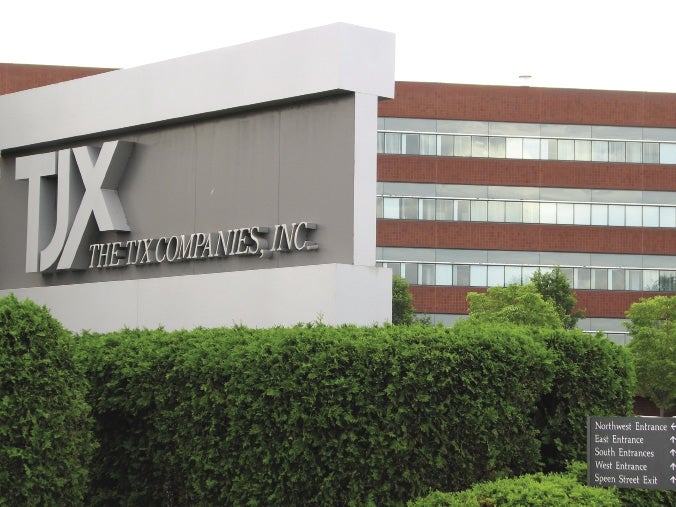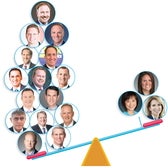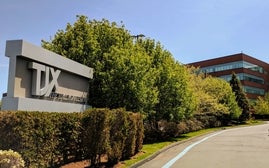Can TJX Maintain Its Growth Pace?
 File photo
In addition to maintaining its Framingham headquarters, TJX is expanding into Marlborough.
File photo
In addition to maintaining its Framingham headquarters, TJX is expanding into Marlborough.
Framingham-based TJX Cos. Inc. is one of the few real corporate success stories of the last four years. In August 2008, before the stock market crash, the company's stock rose to more than $18 a share, the highest point in its 10-year history. Since then, in the face of recession and market volatility, it's risen steadily to more than $40.
For those following the company, the next question is: Can TJX keep it up? The answer depends on whom you ask. Among analyst opinions of the discount retailer collected on Yahoo Finance, there are six “strong buy” ratings, 10 “buys,” 10 “holds,” and one “underperform.”
There's no doubt the company is making serious money. For the year ended January 2011, it made $1.5 billion in profits on net sales of $23.2 billion, up from $914 million profit and $19 billion in net sales three years earlier.
In late June, Wells Fargo raised its rating on the company from “market perform” to “outperform” and lifted its target range for the stock. The firm praised TJX's advertising campaigns and quick inventory turnover and predicted that consumers in the U.S. and Europe will continue to be drawn to discount merchandise. It also suggested the company could benefit from declining performance by rival JCPenney.
Just last week, TJX reported a 9-percent year-over-year increase in sales for June, to $2.3 billion. For a 22-week period that ended June 30, sales reached $10 billion, a 10-percent jump from 2011. That puts the company on a pace to reach close to the $24-billion mark in annual revenue.
However, in May, Canaccord Genuity had downgraded TJX from “buy” to “hold,” arguing that the company's growth is slowing.
Like Wells Fargo, Dutch Fox, an analyst with FBR Capital, continues to like TJX stock. He's given the company a positive “outperform” rating. Fox said customers from retailers like JC Penney, Nordstrom and Macy's are switching to lower-price options like TJX's TJ Maxx and Marshalls stores.
“It's hard to resist that value,” he said. ”People have gone from bragging about aspirational buys to bragging about 'look at the great deal I got on this.'”
Fox said he's also impressed with improvements in the design and layout of TJX stores, things like better organization of clothes and nicer lighting. Those are the kinds of things that could keep customers shopping in TJX stores, even if the economy improves.
E-Commerce Moves
Looking further into the future, Wells Fargo is optimistic about TJX's efforts to move into the e-commerce realm. This year, the company has been discussing the idea of selling products online. Analysts say it's a tricky move for the company. TJX buys much of its wares at a discount from wholesale sources, which means it often has small quantities and moves them quickly. That demands an unusually nimble online presence.
But Fox said an even more important issue could be TJX's relationships with its sources. Some brands the company sells might be less than thrilled at having their goods show up with steep discounts online for everyone to see. And other stores that sell the same brands might have the same concerns.
Still, Fox said the company is right to work on its e-commerce plans because, right now, that's one of the few areas where it's lagging.
Playing Online Defense?
One piece of the company's online strategy appears to be buying up top-level domain names (TLDs).
TLDs are what come after the final dot in most web addresses, with .com, .net and .org being the most obvious examples. TJX has applied to own seven of them, corresponding to the names of its stores in the U.S. and abroad. That means web users will be able to find sites at .tjmaxx, .marshalls, .homegoods and others.
TJX declined to comment for this story to avoid sharing competitive information, but some say most companies that are registering TLDs are doing it to make sure no one else takes ownership of the domain names to use against them.
“I think it's much more of a defensive mechanism for now,” said Matt Ward, president and CEO of InConcert Web Solutions in Gardner. n
Read more












0 Comments